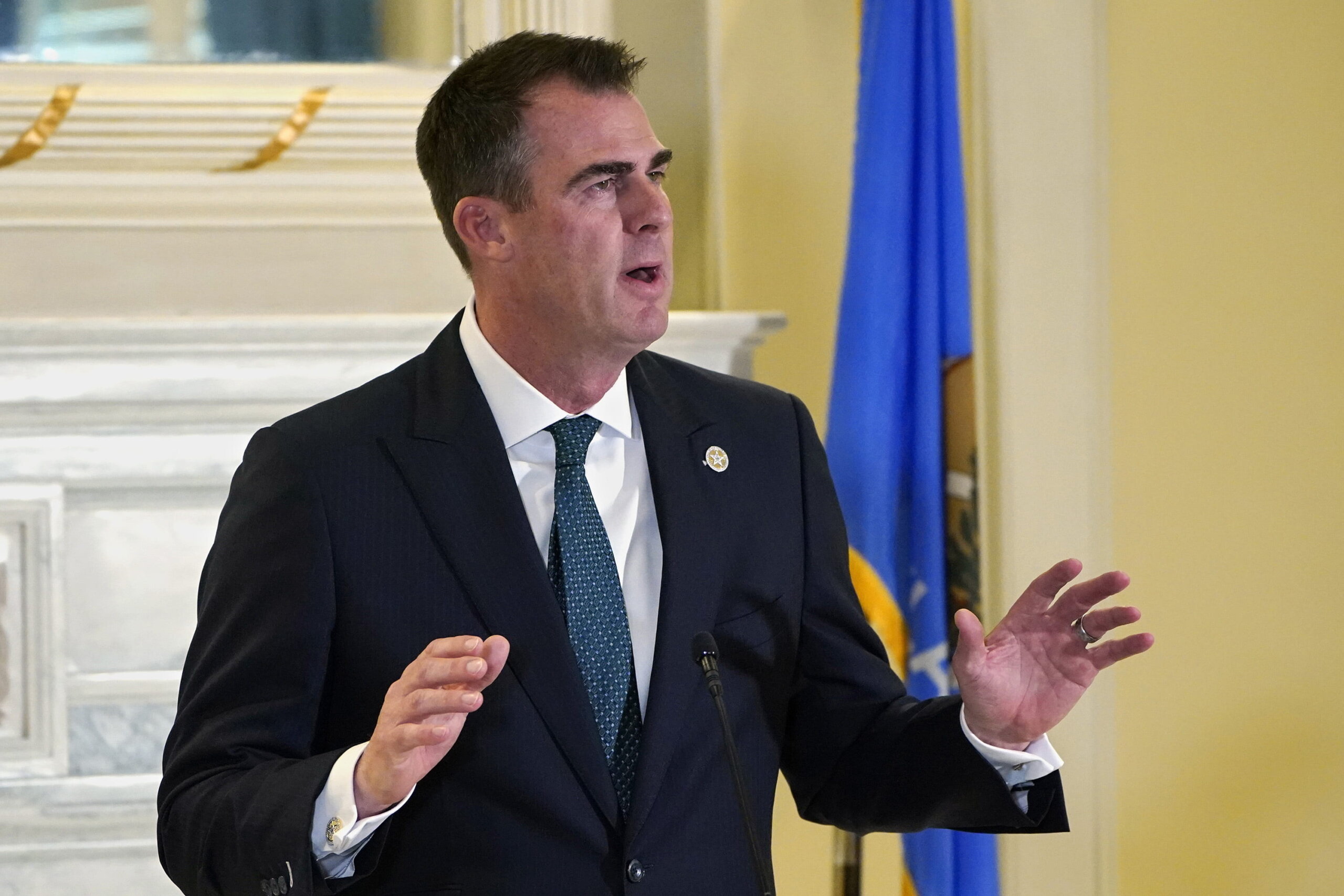Oklahoma governor Kevin Stitt signed a bill earlier this week preventing trans students from using the bathroom that most closely aligns with their lived gender in school. The law is the third to be approved in Oklahoma this year targeting trans people and the second anti-trans measure enacted in the U.S. just this week.
On May 25, Stitt rubber-stamped Senate Bill 615, which applies to students in all K-12 public and charter schools in the state. The legislation allows trans students who do not wish to use gender-incongruent locker rooms or restrooms to request “a single-occupancy restroom or changing room,” although the bill does not legally require school districts to provide such accommodations.
Stitt, a Republican up for reelection this year, said via a spokesperson that SB 615 is designed to ensure safety in schools.
“Governor Stitt believes girls should use girl restrooms and boys should use boy restrooms,” Carly Atchison, the communications director for Stitt’s office, said in a statement provided to local newspaper The Oklahoman.
SB 615 is set to take effect immediately, as the bill was written with an emergency clause that triggers the legislation as soon as the governor signs it. School districts that do not comply with the legislation reportedly could have their state funding reduced by up to 5 percent, resulting in up to millions of dollars in losses for educational programming.
The law also allows parents to sue districts that allow trans students to use campus facilities that match their gender identity.
“With a flick of his pen, Governor Stitt said that safety doesn’t extend to already vulnerable transgender and Two-Spirit young people.”
After SB 615 was signed earlier this week, LGBTQ2S+ advocacy groups said they intend to fight to overturn the new law. Nicole McAfee, executive director of Freedom Oklahoma, said her organization has been in discussion with Lambda Legal and the American Civil Liberties Union (ACLU) about filing a lawsuit against SB 615, which she called “unconstitutional” and “unnecessarily cruel for the sake of cruelty.”
“Over the last day we’ve heard people talk about school safety over and over again,” McAfee said in a statement. “But with a flick of his pen, Governor Stitt said that safety doesn’t extend to already vulnerable transgender and Two-Spirit young people.”
SB 615 is one of just a handful of anti-trans bathroom bills ever signed into law in the U.S. following North Carolina’s House Bill 2, which was repealed after dozens of major companies threatened to pull business from the state. The backlash was projected to cost the state $3.7 billion over the next 12 years, according to projections from the Associated Press.
Last year, Tennessee became the first state since North Carolina to pass an anti-trans bathroom bill after two such measures were signed into law: one impacting businesses and the other affecting schools. The former, which forced businesses that allow trans people to use gender-congruent restrooms to hang signs warning the public of the policy, was struck down by a district court earlier this month. The latter currently remains on the books.
Oklahoma’s anti-trans bathroom bill is one of several pieces of legislation discriminating against the LGBTQ2S+ community to be enacted in the state this year. Already in 2022, Stitt has signed bills that ban non-binary people from having an “X” gender marker listed on their birth certificates and prohibit trans female students from playing school sports in alignment with their gender identity.
But as a record number of states advance anti-trans legislation this year, Oklahoma wasn’t the only state to pass a law targeting trans youth this week. On May 23, Indiana lawmakers forced through an anti-trans sports ban over the veto of Republican Gov. Eric Holcomb, as was widely expected.
The Indiana House voted 67-28 to override Holcomb’s veto of House Bill 1041, which bans trans women and girls from participating on school sports teams in accordance with their lived gender. The Senate joined House lawmakers in a 32-15 vote.
Holcomb declined to sign HB 1041 after finding “no evidence” that the bill addresses a problem currently facing Indiana schools, as he said in a March statement. He was one of several GOP governors who have refused to sign anti-trans sports bills in recent years, a list that includes North Dakota’s Doug Burgum and Utah’s Spencer Cox. Cox’s veto was subsequently overridden.
A lawsuit has already been filed in response to HB 1041 against Indianapolis Public Schools, which would be forced to comply with the policy by law. The measure takes effect on July 1.


 Why you can trust Xtra
Why you can trust Xtra


